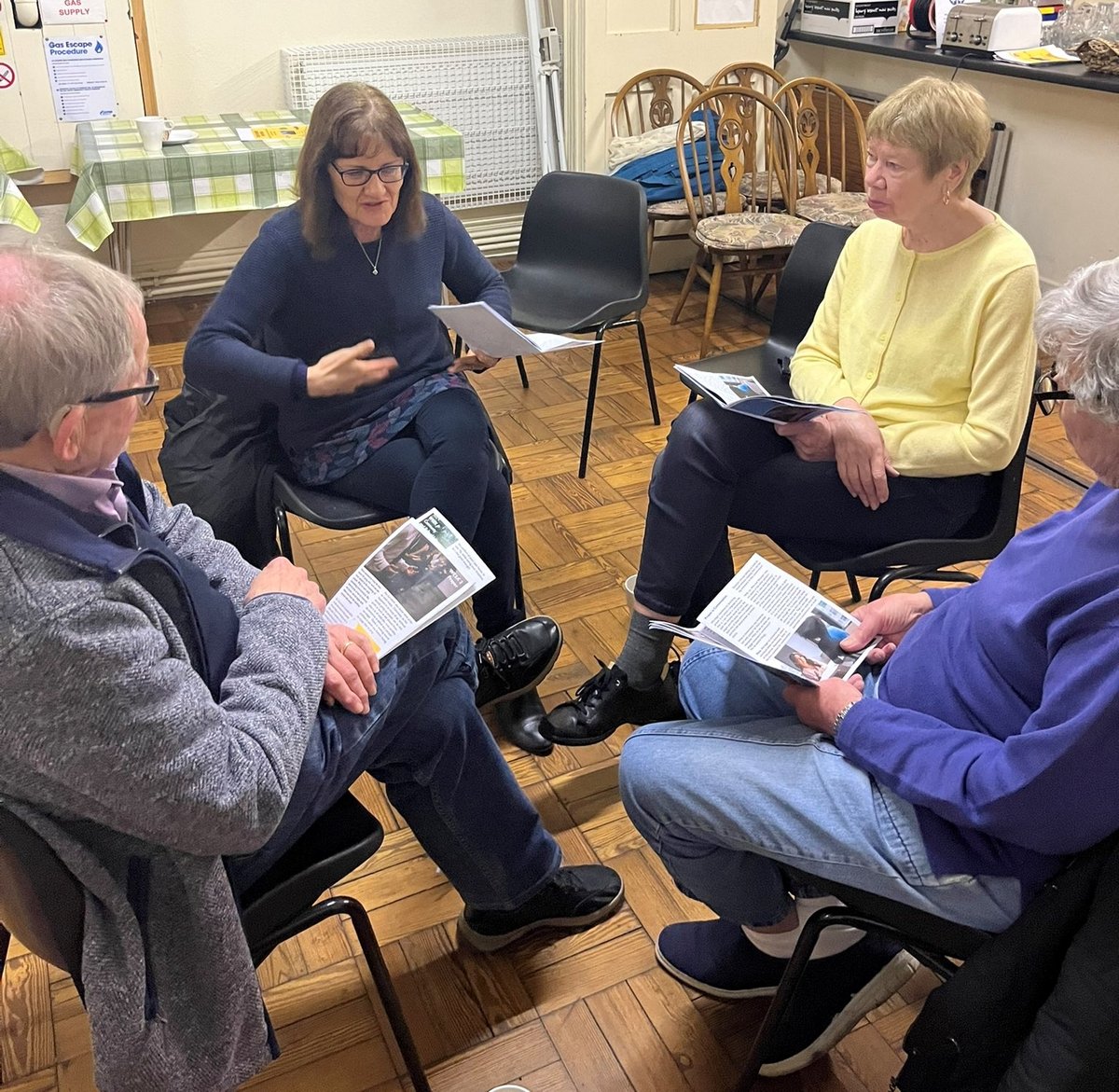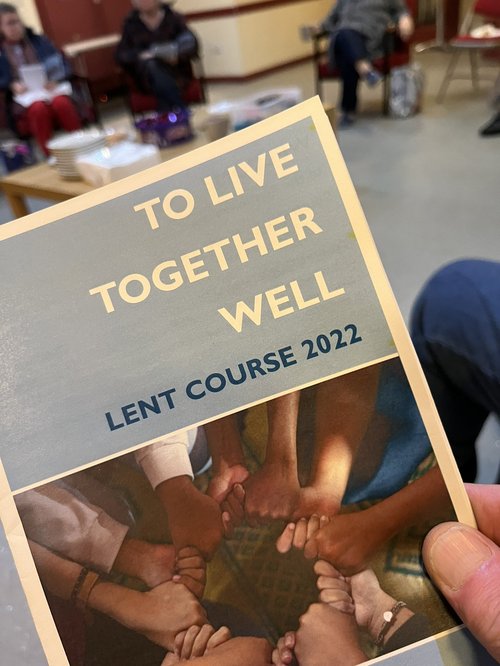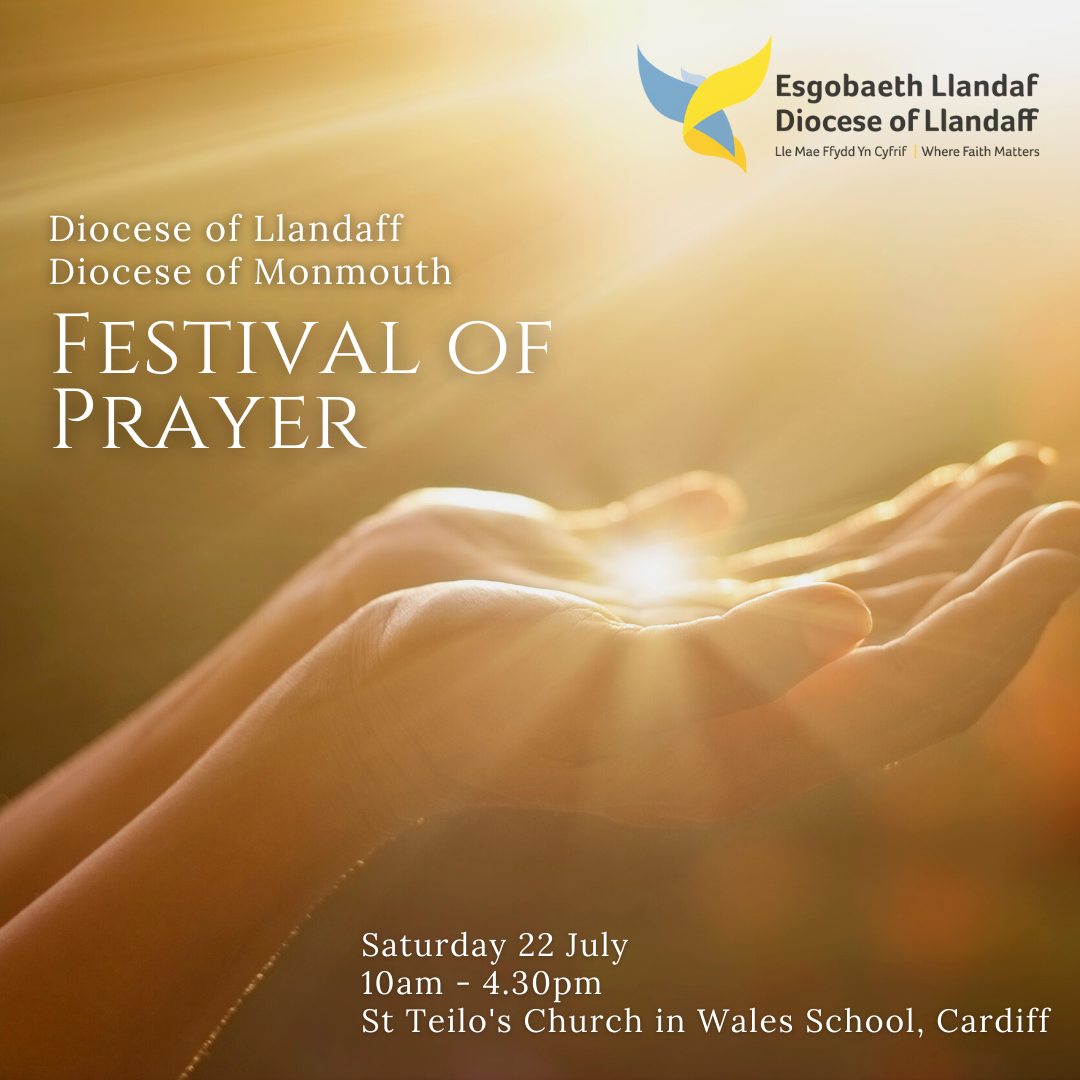What happens when we pray?
During Lent in the South Cardiff Ministry Area we’ve been following Living Well Together Lent course written by Fr Edward Owen and designed Fr Dean Atkins. The aim of the course is to formulate a Rule of Life that can help our Christian communities to identify together as the South Cardiff Ministry Area. This has led to some fascinating discussions about the nature of prayer. Father Edward tells us more.

At our recent Living Well Together Lent discussion, we asked to very simple questions:
- Why do we pray?
- How do we pray?
The answers tell us a lot about the importance we as Christians place on prayer. As Diocesan Spirituality Officer I am often asked to provide resources to explore the power of prayer. It remains an important part of our lives - whether you are a regular church-goer or a casual see-you-at-Christmas person. Prayer, it seems, is valued time with God but few of us find it easy.
Why do you pray?

At the Lent discussion group, we all agreed that prayer is a conversation between ourselves and God. But we took this further and thought about the language of prayer.
We converse with someone when we become aware of them.
In prayer we bring ourselves into the presence of God. We agreed that we prayed because we had need of God, we want to know God’s love and to bring to him our concerns.
Last year I spoke at our online Day of Prayer about the Franciscan Principles. They are challenging but I believe they are worth pondering as part of our understanding of prayer during Lent.
How do you pray?
It was when we turned our discussion to how we prayed that the conversation really began to open up. For some people praying the Daily Office of Morning and Evening Prayer led them closer to God. For others the Rosary or attending the Eucharist helped them in their prayer life. But for several people that all felt too structured and they tried to pray whilst doing their daily tasks and drew closer to God in that way. We can draw closer to God by becoming more aware of nature or perhaps whilst being outside walking or running.
During prayer we give of ourselves to God because we are able to be in conversation. One thing however is guaranteed; if we want to have a conversation with someone, we have to be able to speak in the same language as them. Different methods of praying lead us to learning a new language in which to speak to God, and to further develop our lives of faith.
Do you feel confident in your prayer life?
This drew a very mixed response; some people weren’t sure whether confident was the right word to use, because God understands our needs before we do. We then reframed this and thought about techniques of prayer and where we learned them. For some people it was at home, in the context of family life, for others who had come to faith as adults, it was later in life that their awareness of God developed.
One thing that we all acknowledged, was that we faced distractions at times and had to work hard to get through them. If that sounds familiar to you then perhaps try ten minutes of prayer using Christian Mindfulness method. My colleague Rev'd Caroline Downs has produced a series of short courses that can help. Episode 1 is below or follow the full course on our YouTube Playlist.
But one thing that we all agreed on and recognised is that we all have more to learn and there is always room for growth in our prayer life, but that by working together we are able to teach one another and grow in knowledge and love of God.
Diocese of Llandaff Day of Prayer

A day to explore prayer and spirituality.